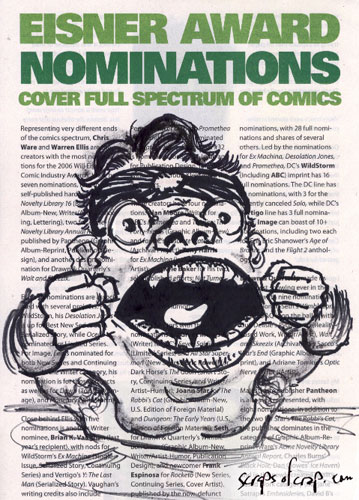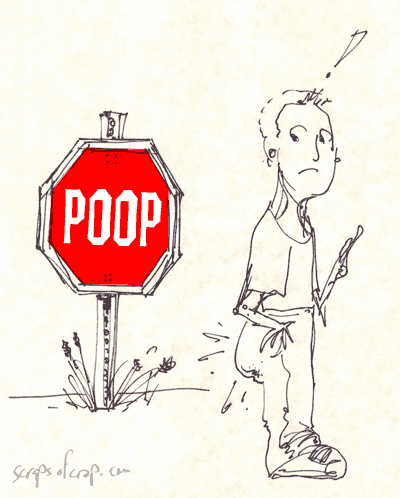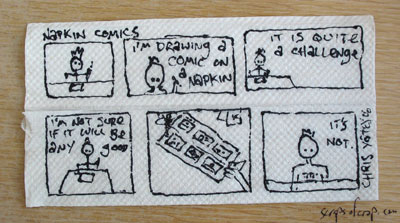
Blog
Drawing: put that in your pipe and smoke it

Drawing made at the Stumptown Comics Fest in Portland.
Video: an early draft of Bush’s speech
<object width=”425″ height=”344″><param name=”movie” value=”http://www.youtube.com/v/FHGXUPF5CZ8&hl=en&fs=1″></param><param name=”allowFullScreen” value=”true”></param><param name=”allowscriptaccess” value=”always”></param><embed src=”http://www.youtube.com/v/FHGXUPF5CZ8&hl=en&fs=1″ type=”application/x-shockwave-flash” allowscriptaccess=”always” allowfullscreen=”true” width=”425″ height=”344″></embed></object>
Don’t read too much into this ideologically, it’s just for fun.
I spent a lot of time making many of the edits look invisible, and now I think it would have been more fun if they all were herky-jerky. Oh well.
Drawing: the sign is an imperative

Drawing made at the Stumptown Comics Fest in Portland. One of quite the extensive series inspired by Chris Yates’ own real-life poop signs.

